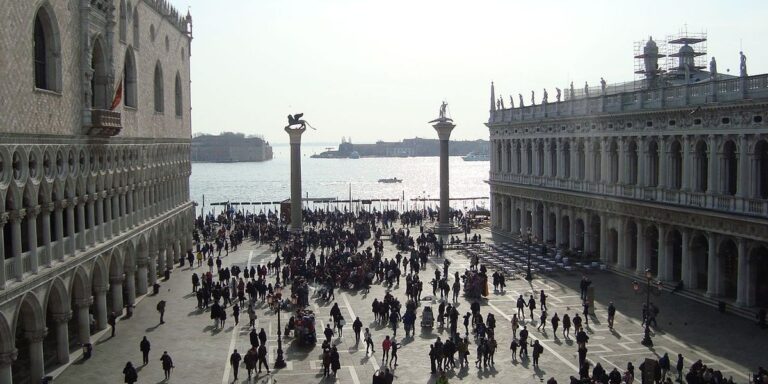A ticket and a QR code to validate upon arrival. On April 25th, Venice became the first city in the world to impose an entrance fee into the city center. For 29 days, from April 25th to July 14th, a 5 euro ($5.45) ticket was required for day-trippers to enter the old town between 8:30 am and 4 pm on weekends, except for June 2nd, which is a national holiday. So, what was the result?
“Nothing has changed. The situation is still dire,” laments Susana Polloni, a Venetian resident and spokesperson for Rete Solidale per la Casa, an association that helps people find housing in Venice. A paleographer, she describes an unbearable daily life: “The streets are congested, the transport is overcrowded, every trip feels like a journey of hope. It’s impossible to find housing because all the apartments have become Airbnb. Our city has become a museum, it has lost its soul.”
Matteo Sekhi, hotelier and founder of the civic group venessia.com, said: “The daily influx of tourists has not changed, but now everyone thinks they have to pay to visit Venice. It’s as if our city has become an amusement park. This is terrible and unhelpful for our image.”
The 50-year-old also criticised the infringement of residents’ personal freedoms: “It’s not normal to have to show papers to prove you live here or register in advance so friends can visit for free. It’s very restrictive for us.”
Avoid the UNESCO endangered species list
The attempt to introduce tickets has been planned for years, introduced in September 2023 to avoid a dangerous return to the UNESCO World Heritage List of World Heritage in Danger. But early city data suggests the tax has not significantly discouraged tourist visits to the canal city.
Between April 25 and July 14, some 3.6 million reservations were recorded, an average of 120,000 per day, similar to peak numbers in recent years. Of these 3.6 million daily admissions, only 485,062 people paid, about 16,000 per day, generating revenue of more than 2.2 million euros ($2.39 million). The ticket does not apply to tourists staying in the city center, tourists under the age of 14, students, workers, property owners or Veneto residents.
That’s not surprising, according to Laura Fregorento, an urban planner at Venice’s IUAV University: “Five euros is not a deterrent and there are too many exceptions. It doesn’t make sense not to tax Veneto residents, who make up a significant portion of day-trippers.”
According to the city, to raise awareness
In response to the criticism, Venice’s Deputy Mayor for Tourism, Simone Venturini, defended the positive results: “During the tests, many tourists said they would be happy to pay five euros to contribute to the future of Venice. In this sense, our main goal has been achieved: to raise awareness among tourists about overtourism and the need to protect Venice,” he said in an interview with La Croix.
As for the remaining tickets, “a more detailed analysis of the numbers will allow us to better adapt the tool,” Venturini continued, suggesting ticket prices could increase by up to 10 euros ($10.90) depending on attendance.
“Increasing the entrance fee won’t solve the problem. There will always be too many people in the city,” Fregorente countered, accusing the city of a certain hypocrisy. “To really regulate the flow, you need to set a threshold beyond which you will not sell any more tickets.”
According to the scholar, the entire approach needs to be rethought: “Instead of fighting tourists, we need to develop cities first, implementing structural policies that encourage residents to settle and attract new ones. But this requires real political will.”
Restricting Airbnb rentals, encouraging property owners to rent to residents rather than tourists, moving basic services like schools and doctors back to the city center and reviving non-tourist activities — many proposals are on the table, but the key is to see Venice as a city, not an amusement park.

